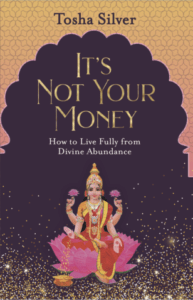 I love this book: It’s Not Your Money- how to live fully from Divine Abundance, by Tosha Silver
I love this book: It’s Not Your Money- how to live fully from Divine Abundance, by Tosha Silver
Occasionally a money book comes along that I adore so much, I not only read it twice, but must share it with my readers. Tosha Silver’s latest is one such book. What makes it sweeter is that I consider Tosha Silver one of my spiritual teachers. Five years ago, my friend Kathy handed me her first book, “Outrageous Openness” and I have been hooked ever since.
Tosha is not a money guru. And she herself definitely never saw a money book in her future. She is an American spiritual teacher. Tosha Silver graduated from Yale with a degree in English Literature but along the way fell madly in love with the deep path of Raja Yoga and the spiritual philosophies of East India. For the past 30 years she has taught people around the world ways to align with Inner Love.
One of her core teachings is about “offering”. When we offer our lives– our thoughts, decisions, and actions– over to the Divine Source, everything flows easier. This could be about romance, careers, what car to buy, or… money.
Tosha’s deep personal spiritual practice is married with her irreverent sense of humor and a boatload of wonderful stories. She writes about her own relationship with the Divine and money, and how the Divine can be everyone’s intimate life companion as they navigate financial waters with greater ease.
While not against the “law of attraction”, she has noticed over the years that we often pervert this law into forcing it to deliver what we want, as if the universe were a cosmic Amazon wish fulfillment service. Then we think we did something wrong when the Amazon truck does not disgorge our fulfilled wishes. If one aligns oneself with flow and knows that it is not really your money to begin with, but the Divines, everything becomes easier.
A word on language, which she herself addresses in the opening: you can use God or whatever word suits you. Some will prefer “Universal Source”, or Shakti, Lord, Love, Flow, Lakshmi (Indian Goddess of abundance), Divine Intelligence, or whatever works for you.
At the center of her work is the idea that we are here to serve the Divine and have the Divine flow through us, not the other way around–where the divine is at our beck and call. Tosha’s work is dedicated to the idea of “offering”. This is a beautiful concept. We can offer up our burdens and let go of being the “doer”. The divine will show the way. And with practice, offering gets easier.
She interweaves the idea of “Prarabdha Karma”– “the idea that in each lifetime, a soul is born for a distinct curriculum. Every desire might not be meant to occur, no matter how many vision boards you make.” (The emphasis is Tosha’s.) The truth is that everyone may have a different set of abundance lessons they are learning in any given lifetime. But you can learn how to invite and embody the universal Source, and as you open to it, abundance flows in all sorts of wonderful ways.
Her book is about how to become a conduit for Divine Flow. She teaches us how to become open to how God wants to “deliver”, often in ways we never imagined.
In short, when we align with the Divine Source, true abundance can flow through us unimpeded. Chasing abundance does not work. “Being” abundance, and letting it flow through us, does.
With all this in mind, Tosha guides the reader through five steps that will align you with greater abundance. This allows prosperity, in all its many forms, to flow easier into your life. You are lifted from financial worries and come to a place of knowing that you are always taken care of and there is always enough money.
As one of her chapters opens, it says, “You can’t water the roses if you are standing on the garden hose.” Yes! She teaches the reader how to shift from demanding and chasing to offering and opening. In this way, abundance begins to truly flow through you. Trust replaces fear.
One of her steps will be familiar to readers: clearing out clutter. When people release clutter, they create room for something new to come into their life. I have seen this again and again with clients. As they clean out a purse or an old file cabinet, money comes in unexpected ways. (I wrote a post inspired by Marie Kondo’s book, called “The life changing magic of tidying up your finances” and how it relates to prosperity.
Opening up to receiving is also key. When we say, “I am open to receiving” we allow the flow to come. So many people, women more than men, tend to give too much and not allow their “receiving” value to function two-way. Sometimes we feel guilty about receiving. But to become truly abundant, we need to allow the flow to come to us in sometimes unexpected ways. You can not pray for greater abundance, and then dictate to the Divine how the flow arrives. (You can certainly state your preference, however.)
Through story after story, Tosha shares how offering and clearing, praying, and releasing, bring us abundance in the way that is perfect for us. Along the way she helps us cleanse old childhood wounds that keep us stuck. So many of us have wounds that say we do not deserve abundance, and this staunches the divine flow.
One core of her book is her abundance prayer. She asks readers to say it daily. It is beautiful and powerful. I will only quote the beginning of it here, as it is truly Tosha’s. But I urge you to get the book just for it, and even better, buy a copy of the abundance prayer. Frame it and say it daily. I bought two copies- one I framed for me and one I gave to my love to keep by his bed as he transitions to his next career calling. He loves it too.
“Divine Beloved, allow me to give with complete ease and abundance,
Know that You are the unlimited Source of all.
Let me be an easy, open conduit for Your prosperity.
Let me trust that all my own needs are always met in amazing ways
And that it’s safe to give freely as my heart guides….
(The entire prayer is here on Tosha’s site in her store. https://toshasilver.com/)
I’ll end this review by quoting what is on the back of the dustcover to Tosha’s book. Writes Tosha, “Very often people find my work because chasing and grasping has crashed and burned like a meteor. But that painful destruction is a moment of tremendous grace as well. Because when the ego finally sees the utter madness of trying to lead, you come to a sacred crossroads in your own evolution… You’re finally ready to let something greater than the ego take over your finances, and everything else. True intimacy with the Divine can begin. This is the road to abundance and freedom.”


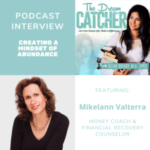
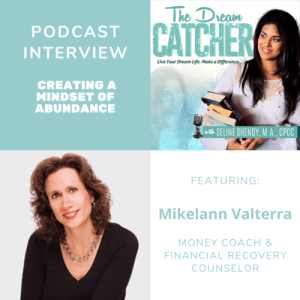 Want some joyful inspiration for your money life? Here is an amazing 40 minute podcast on:
Want some joyful inspiration for your money life? Here is an amazing 40 minute podcast on: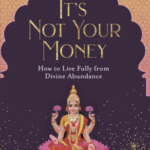
 I love this book:
I love this book: 


 Whenever I teach a seminar on money, invariably I ask the audience, “What is the point of having money?” Answers start flying and I throw them on a whiteboard. “Retirement, vacations, money for my kid’s college, pay my mortgage, to have fun, to not be stressed about money, charitable giving, to pay the bills, new car….”
Whenever I teach a seminar on money, invariably I ask the audience, “What is the point of having money?” Answers start flying and I throw them on a whiteboard. “Retirement, vacations, money for my kid’s college, pay my mortgage, to have fun, to not be stressed about money, charitable giving, to pay the bills, new car….”
 We’ve all had that “feeling” arise–a hunch or a sudden sense guides us on what to do next or gently stops us from proceeding. We hear the whisper that directs us down a new road and leads us to explore a new topic or to avoid a bad situation.
We’ve all had that “feeling” arise–a hunch or a sudden sense guides us on what to do next or gently stops us from proceeding. We hear the whisper that directs us down a new road and leads us to explore a new topic or to avoid a bad situation.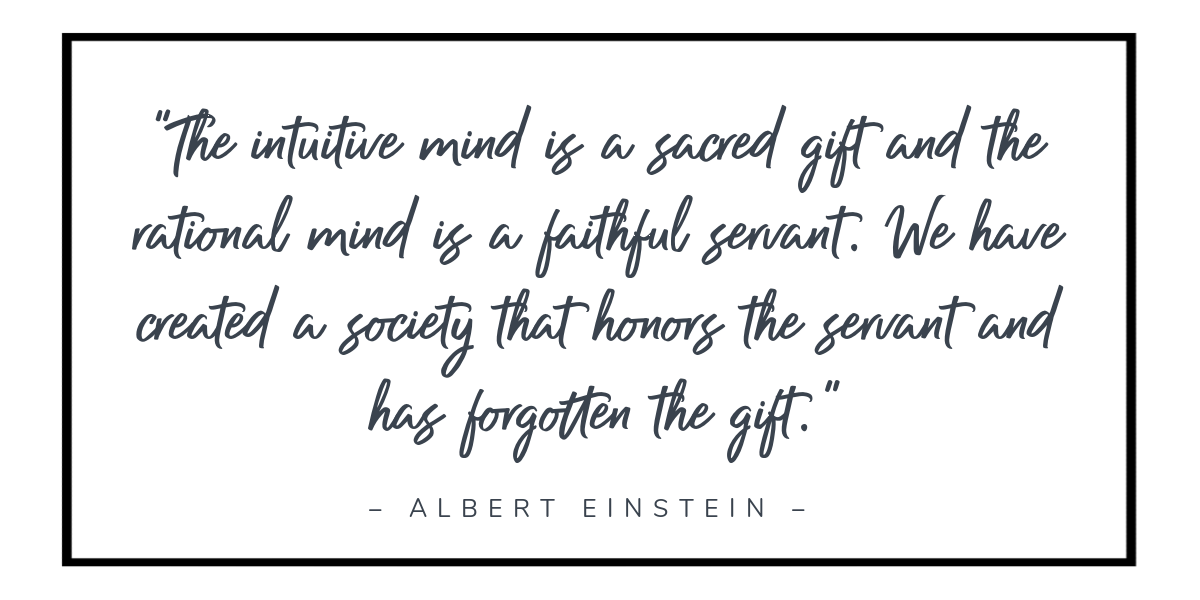

 Last week as I was doing some yoga postures and preparing to meditate, it struck me that yoga has some deep similarities to how I handle my money life. Let me share why I think this.
Last week as I was doing some yoga postures and preparing to meditate, it struck me that yoga has some deep similarities to how I handle my money life. Let me share why I think this.


 A couple of Saturdays ago, I finally sat down with my magic crystal ball. I was ready to create my personal 2020 spending plan. I was a bit nervous this year about what I would see in the ball. I am finishing a large construction project on my house, and my son is in his third year of college. (Wow.) And I’ve become very involved in the Seattle Tango community, so of course I want to take lots of classes and go on tango trips. Who doesn’t want to dance and travel! But the cost. Yikes…
A couple of Saturdays ago, I finally sat down with my magic crystal ball. I was ready to create my personal 2020 spending plan. I was a bit nervous this year about what I would see in the ball. I am finishing a large construction project on my house, and my son is in his third year of college. (Wow.) And I’ve become very involved in the Seattle Tango community, so of course I want to take lots of classes and go on tango trips. Who doesn’t want to dance and travel! But the cost. Yikes…
 Thanksgiving is coming up. I hope you all have restful plans for it. After turkey, I personally plan on dancing tango the rest of the holiday weekend. Fun!
Thanksgiving is coming up. I hope you all have restful plans for it. After turkey, I personally plan on dancing tango the rest of the holiday weekend. Fun!